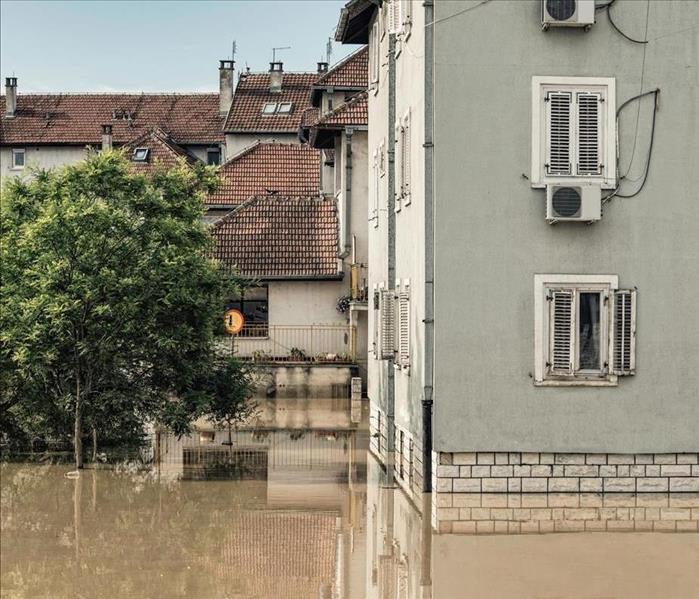What Are the Three Types of Flood Water?
4/30/2021 (Permalink)
When floodwaters enter your Greenville, NC, home, whether from a broken supply line, toilet overflow or flooded river, one thing is for sure: the water will cause damage. The difference is the type of cleanup required based on the incoming water's classification and if it's severely contaminated water or not.
3 Types of Flood Water
There are three classes:
1. Category 1
White water (aka clean water) is safe to handle because it is from a reasonably sanitary source. It could be rainwater, a leak from a clean toilet, or a pipe burst. This water doesn't require protective gear or strict precautions to clean up. However, it needs to be removed and dried as quickly as possible; mold can begin growing within 24 hours.
2. Category 2
Gray water is somewhat contaminated water. You'll need to take some care when cleaning this water, as it contains biological or chemical contaminants that could be harmful but not likely toxic. Water from aquariums, showers or washing machines can contain matter such as bacteria, detergents, urine or blood. Hence, it's essential to wear protective gloves while cleaning and keep children and pets away from the affected area.
3. Category 3
Black water is particularly hazardous because there's a high probability that it contains many harmful biological and/or chemical contaminants. This type of water comes from conditions like raw sewage or natural disasters. You might be surprised to find out that freshwater and ocean water are also classified as category 3. This is due to the countless unknown contaminants. Category 3 water cleanup should only be handled by water damage restoration professionals to ensure proper safety precautions by experts.
Whatever the class of contaminated water in your home, the affected area must be cleaned and dried thoroughly to avoid further damage. The more prolonged dampness is left to linger in your home, the more loss it'll sustain. Taking the necessary cleaning precautions will ensure the well-being of your family, property and home.




 24/7 Emergency Service
24/7 Emergency Service
